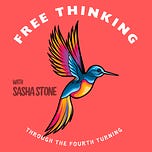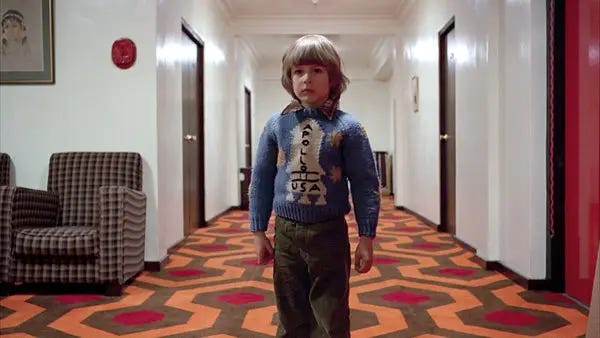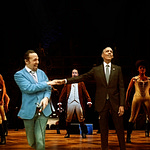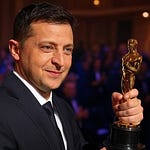Stanley Kubrick’s sublime The Shining breaks all of the rules. It breaks the rules of adaptation by completely upending the plot and meaning of Stephen King’s original book. The plot of the movie doesn’t really even make sense from a story point of view. King’s book is very much about telekinesis inside people and inside the Overlook Hotel. The hotel wants the boy Danny because his powers are so great. In their way is the mother Wendy, strong and protective, who will keep them from getting the boy. They use recovering alcoholic Jack, a writer, to kill off the mother and bring the boy into the fold.
In the movie, Jack simply loses his mind inside the potentially haunted Hotel. Kubrick has simplified it greatly, to focus on the claustrophobia of the snowed-in hotel, and how that might break down a marriage.
If The Shining was released today it would be trashed by some 200 self-appointed critics who operate more or less as a hive mind that monitors issues of social justice, as every industry controlled by the left does, as much as it does anything else. But in 2021, there is no such thing as a purely great movie unless it crosses all of the t’s and dots all of the i’s. Amazon Studios has even written it into its DEI guidelines for filmmakers. The left has been consumed by its own righteousness and has become every bit the zealots of the Evangelical Right.
The Shining is allowed to mostly exist as a film made before the religion took hold (pre-2014). It would not be made now the same way. Not a chance. First of all, you could probably count on one hand those working today with Kubrick’s talent and ability. But secondly, there is no way it would be told the way Kubrick decided to tell it.
Kubrick’s The Shining would be described as misogynistic, no doubt, by many of those who cover film. The irritation with the actress Shelley Duvall by director Stanley Kubrick and star Jack Nicholson is clearly evident and, dare we say, hilariously funny.
But it’s funny in that way you might only get if you are a member of Generation-X, that is those of us who really were jaded throughout our young adult lives and preferred subversive art to almost every other kind. We think Taxi Driver is funny. We think Blue Velvet is funny and, yes, we think The Shining is funny.
But it’s also brilliant. The reason is, quite simply, that Stanley Kubrick was a great director. He took material that wasn’t his and made it his.
Kubrick’s The Shining spoke about the social issues of the time in a quiet whisper, like many of the films of the late 70s did. Feminism, in particular, was taking a hit. If you remember the 80s you’ll remember how no woman wanted to admit she was a feminist. It had a negative connotation, at least to any woman who wanted to attract a man. You heard “I’m not a feminist but…” a lot. It took a while for the word to come back into style. Of course, now it barely exists as a stand-alone movement because it’s been overtaken by trans rights, or non-binary or LGBTQIA+. Feminism? What’s that?
Stephen King wrote The Shining in 1977 and is (and was) most definitely married to and influenced by a feminist, his wife Tabitha. So his book isn’t the same kind of commentary that the film version of The Shining is. If you are familiar with King’s work you know what an important person Tabitha is to him. He has called her his “ideal reader” and there is no way she doesn’t get the first pass when he writes a draft. Because of that, even with the awkward sex scenes factored in, his books have always been feminist-friendly.
Kubrick, however, was having none of that. The film version exists inside the mind of a man who is driven so insane by his wife and son that he imagines a hotel driving him towards murder. If you had not read the book, that might have been your takeaway. I find the book actually scary and the movie kind of funny. Much of that is due to Nicholson’s hammy but hilarious and magnetic performance as Jack.
Nicholson appears to be trolling Shelley Duvall throughout, and though she famously had a traumatic or difficult experience on the set, the result is something weird and unexpected. The more distraught she becomes, the harder he is on her and somehow it becomes funny. This is one of the things about comedy that is hard to explain. If you dissect it and analyze it there is nothing funny about it. But it somehow it is.
Even though Shelley Duvall is mousy and bullied by Jack in the movie, she still manages to be the feminist hero in the film that she isn’t really as much in the book. That’s because she is “saved” by the character Scatman Crothers plays in the film (he’s killed in the film, leaving Wendy to be the hero).
The acting in The Shining is great, the story is pretty good but what makes it timeless is the directing. If you want to know what great directing is, watch this film. Shots like this one. Kubrick doesn’t have to make this scene funny. It’s supposed to be scary - it’s the scene where Hallorann realizes that Wendy and Danny are in danger. But he makes it funny anyway in the two zoom shots.
One of the bummers of living through 2021, if you love movies, is that the notion of what makes a great director comes secondary to their gender or skin color. A white man like Stanley Kubrick is expected to recede into the background to allow for marginalized groups to step up and be counted. And while there is certainly nothing wrong with inclusion, when it comes to great directing, enforcing “equity” can mean you are going to watch people praise movies that aren’t very good and ignore movies that really are great just to keep things equitable and fair.
The best horror movies ever made were directed by men, and those include Alfred Hitchcock’s Psycho and The Birds, Nicolas Roeg’s Don’t Look Now, Brian De Palma’s Carrie, John Carpenter’s Halloween and The Thing, and They Live, Philip Kaufman’s Invasion of the Body Snatchers, Tobe Hooper’s Poltergeist, Ridley Scott’s Alien, William Friedkin’s The Exorcist.
I also count Steven Spielberg’s Jaws and David Fincher’s Gone Girl as horror films, even if they don’t fit the traditional definition.
Jennifer Kent who directed The Babadook, and Mary Harron who directed American Psycho, are among the shortlist of women whose films are on par with the best of the genre.
I don’t know why men are better directors than women. Some would say a patriarchal society handed directing to men, or that men are mentored and guided where women aren’t. Some even say that men are more visually inclined than women since they were the hunters, where women were the gatherers. Most people I know don’t want to have this conversation. It is verboten. We have to all just pretend everything is normal and everything is going fine and the only thing holding women back was sexism. Maybe someday that will be true. Maybe more chances for women will mean they eventually make movies that are as great as the ones men have made. I don’t know. I just know that right now they do not. Not if we are counting the greatest films ever made.
From my perspective, I love great movies. I hope that the best directors will still be able to make them and be celebrated for them, regardless of whether they are male or female. I do sometimes worry that great movies will have to come second to the ideology going forward. Woke casting or storylines are easy to spot for someone like me, who grew up on movies from different eras. My daughter tells me she and her friends mock films and advertising that are too obviously “woke” because they know when they are being pandered to as any generation would.
Great movies have to tell a truth. They have to be true to what they are trying to do. To get there, it is sometimes necessary to, as is the case with The Shining, be willing to risk people saying it is “misogynist.” It might be, but there is no denying that it’s funny that a guy like Jack would be trapped in a hotel with a woman like Wendy. Backing off even a little bit from that essential premise and the whole movie falls apart.
A great horror film like Jordan Peele’s Get Out very much exists in the post-2014 universe of the “woke” because it is from the POV of a black filmmaker whose nightmare is racism. It tells that truth extraordinarily well. But going forward, it seems that the rules can sometimes hurt the story in various ways. Like the idea that only white people can be “bad” and people of color must always be “good.” Or like casting films in order to meet diversity requirements but in so doing throw the whole film off, as I have seen recently in a film that is not yet out. Here, they cast a black female in the role of what is written as a traditional WASP. It’s important that she is a WASP because the whole arc of the main character is about being shut out of that unattainable world.
The Great Awokening also demands that directors be pure and good from their childhood onward. They also are scolded for the harsh treatment of actors that drove them to their emotional brink, like Shelley Duvall in The Shining or Kim Basinger in 9 1/2 Weeks. The new requirements also forbid casual or gratuitous nudity or maybe even sex scenes. The nudity and sex in Halloween would be deep-sixed, and probably that way too graphic scene in Don’t Look Now with Donald Sutherland and Julie Christie that so many for so long insisted was “real sex.”
For all of these reasons and many more, I kind of think the best horror films, maybe the best films overall, are going to have to live in the past, in a time when artists were free to tell stories and direct films in ways that didn’t necessarily comport to good behavior or keep humanity on the righteous path.
Happy Halloween, Dear Readers. Go watch a great movie.


















Share this post